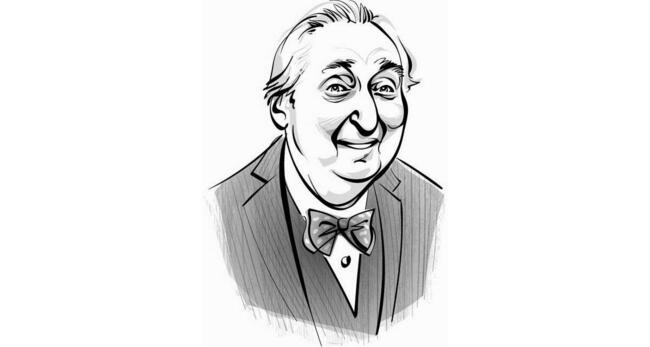
The Immortal Career of Fyvush Finkel
- Written by:
- John Marchese
- Published:
- Summer 2014
- Part of issue number:
- 69

Fyvush Finkel first stepped onto the stage for money at the age of nine, singing in a wedding scene for a dollar a night at one of the famous Yiddish theaters that once studded Manhattan’s Second Avenue. More than eight decades later, he had another debut—as a nightclub performer starring in his own one-man show at the hip new boite farther uptown called 54 Below.
In between, he managed to fashion a career in the twilight of traditional Yiddish theater, touring with legendary actress Molly Picon, joining the original Broadway production of Fiddler on the Roof in a supporting role, and later touring as Tevye with the national road company. In 1988 he won an Obie for his role as a waiter named Sam in Joseph Papp’s production of Café Crown, a 1942 play set in the still-antic world of Yiddish showbiz.
He based his portrayal on an ornery waiter at a real Second Avenue restaurant called Café Royale, a sort of Yiddish Sardi’s in its day. “Mr. Finkel,” wrote Frank Rich, then the well-known—and much feared—theater critic of the New York Times, “is priceless, the soul of meticulous clowning whose every contemptuous glare and shambling step reflects decades of comic practice.”
At an age when many might set aside the practice and retire, Finkel found a second career as a television and film actor, winning an Emmy in 1994 for the television drama Picket Fences. Television and film roles continue to come in, but meanwhile Finkel has returned to performing live.
At his premiere performance earlier this year at 54 Below, one reviewer described the actor as “a slightly hunched-over 91-year-old man with pants buttoned up to his chest and the need of a cane to get around who, as soon as the spotlight fell onto him, transformed into a person with the vim and vigor of a 30-year-old.”
Which may explain why Finkel’s show includes the Yiddish song “Aza yor af dir,” (“You Should Have Such a Year”). We all should.
